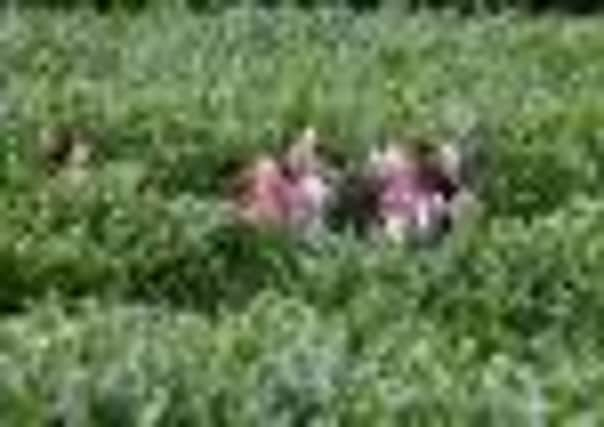Barry Sheerman: Our children must learn the lessons of roaming Britain’s glorious countryside


Children’s books are filled with vivid imagery of Yorkshire’s natural beauty – from The Secret Garden to Wuthering Heights and The Railway Children – and yet many children in Yorkshire have never visited a wood, forest or farm.
When the Education Select Committee in Parliament conducted an inquiry into Out of School Learning we were provided with a wealth of evidence indicating that out-of-classroom education enriches the curriculum and improves educational achievements.
Advertisement
Hide AdAdvertisement
Hide AdI believe all children should have the opportunity to see beyond their local area and to visit the natural environment, our countryside. In our committee we found that children from low income households often saw little outside their locality or even their housing estate.
The delights of rural Yorkshire were, for them, a closely kept secret. If they didn’t visit the countryside with a school trip, they often never visited at all.
It seems obvious to me that the natural environment is there to be explored by children, it is their right and we need to do all we can to encourage outdoor learning and create opportunities for children to enjoy and appreciate the countryside.
School children learn brilliantly outside the classroom. Take, for instance, the Greenstreams project, which has been set up around Huddersfield and the Colne and Holme rivers. Children from primary schools are taken to their local rivers to learn about the cycle of life.
Advertisement
Hide AdAdvertisement
Hide AdIt is a real joy to see their faces when they understand that without the mayfly larvae wriggling under the stones in the riverbed no trout would feed. If there are no trout there will be no kingfisher, no heron and no fishermen who are the true guardians of our rivers.
The recent controversy when the Government attempted to sell off swathes of our publicly owned forests resulted in a vigorous and healthy debate over who owns our countryside and who has right of access to it: I put the case to Caroline Spellman, the Secretary of State for the Environment, Food and Rural Affairs, that we have a responsibility to ensure that everyone is encouraged to treat our countryside as their birthright and that access should be promoted and guaranteed.
Love of the countryside is in our entire DNA; it was not long ago that we were all rural dwellers and little over 200 years ago the English Common land was, in my view, stolen from the English common people through the forced enclosures.
Today we must actively facilitate a love of our rural heritage. We must encourage everyone to walk, cycle, ride and trek to make full use of our open spaces. This is why I am a passionate supporter of Sustrans’ Free Range Kids campaign which promotes outdoor play and encourages children to walk or cycle to school.
Advertisement
Hide AdAdvertisement
Hide AdIn 1973, 75 per cent of children played on the streets around their home. By 2006, this had been reduced to 15 per cent. Why have we had such a big shift in just a few decades?
Lifestyles have changed, children use up much of their leisure time with the television, the computer and electronic games.
This drift towards sedentary pursuits is linked to another major factor, that of their parents’ desire to keep them from harm.
The biggest concern of adults when it comes to children playing outside and walking and cycling to school is the danger posed by traffic. This fear has driven parents to remove children from their natural habitat in the local community, and bring them indoors to play. I am calling for Ministers across Transport, Health and Education to help create safe and pleasant environments for our children to enjoy safely.
Advertisement
Hide AdAdvertisement
Hide AdIn the early 19th century, John Clare wrote some of our greatest rural poetry and fought the enclosures of common land.
Today the John Clare Trust is spearheading the campaign for Every Child’s Right to the English Countryside and is seeking an army of volunteers to make it happen.
Whether we believe in the Big Society or just the good society we know this challenge has to be met and won.
We need to ensure that a new generation understands and believes that our countryside is theirs to explore, to roam and from which to learn.